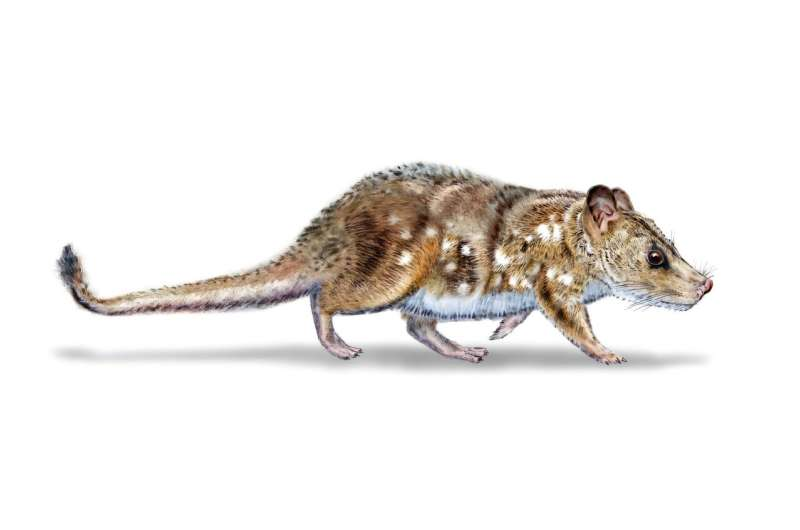Font size:
Print
Discovery of Yeutherium pressor
Scientists find 74-million-year-old mammal fossil in South America
Context: In a remarkable paleontological breakthrough, scientists from the University of Chile and Chile’s Millennium Nucleus research centre have discovered the fossil of Yeutherium pressor, the smallest mammal ever found in Chilean Patagonia, dating back to the Upper Cretaceous period (~74 million years ago).

What are the key features of the discovery?
- Size & Weight: Estimated 30–40 grams (mouse-sized).
- Period: Upper Cretaceous (~74 Mya), coexisting with dinosaurs.
- Location: Río de las Chinas Valley, Magallanes region, Chile (~3,000 km south of Santiago).
- Fossil Evidence: Partial lower jaw with one complete molar and two other molar crowns/roots.
- Reproduction: Likely laid eggs (like platypus) or carried young in a pouch (marsupial-style).
- Diet: Hard plant material, inferred from tooth morphology.
Why is this discovery significant?
- Paleobiogeography: Expands the known range and diversity of Cretaceous mammals in South America.
- Evolutionary Biology: Suggests convergent reproductive adaptations between South American and Australian fauna.
- Climate & Ecology Insights: Indicates specialised herbivory in small mammals of Cretaceous Patagonia.
- Extinction Patterns: Like many contemporaneous species, Y. pressor went extinct ~66 Mya during the Cretaceous–Paleogene (K–Pg) mass extinction event.


